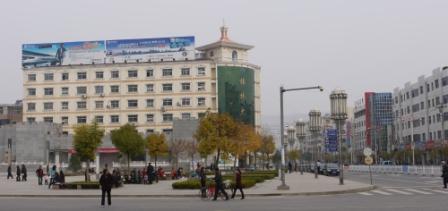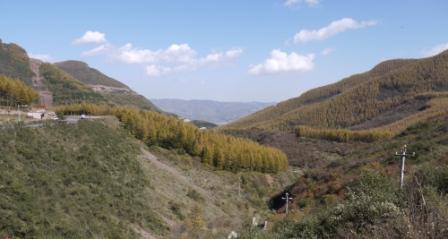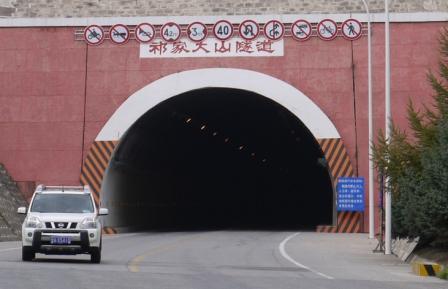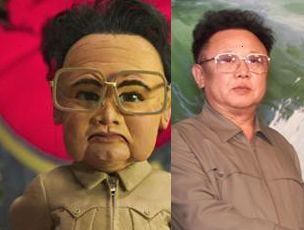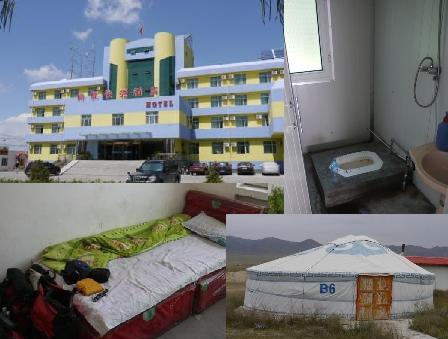
For the Western traveller at least, accommodation in China is remarkably affordable. Few exceptions, mostly international chains catering to the business community. And quite diverse. A bed – just a bed – in a truck stop for the equivalent of a few pounds. Provincial three star hotels for between ten and twelve pounds. Even the odd generously sized business suite in the cities for around twenty. Many with wet rooms. Always handy for cleaning the bicycle and kit. Discreetly.
You may have to barter a bit, the aim being to pay what a Chinese person would, no more. I’ve learnt what to expect. Like a forty to fifty percent discount on the room rates displayed at reception. Which is usually what I’m offered at the outset. Takes the fun out of it, but not unwelcome at the end of a hard day.
Anything other than a truck stop usually comes with the standard complimentary items – always neatly presented – toothbrush and paste, comb, soap and shampoo. But, wherever I’ve stayed, the bedding is always clean. Never seen a bed bug. And I do look. Carefully. And rarely an objection to the bicycle in the room. In which case I go elsewhere.
Just two challenges. Assuming you’re not on a guided tour, haven’t pre-booked, and don’t have a reputable guidebook with decent maps. Finding the various establishments. And being allowed to stay. Cities are straightforward enough, big enough to accommodate places that actually look like hotels. Often showing their names in English. Provincial towns a bit more tricky. Often just a small foyer, usually distinguishable from neighbouring businesses by a line of clocks on the wall behind the reception desk.
In smaller places, or if you want a cheaper option, a case of asking around. In the towns the bus station is a good place to start. Requires quite a bit of patience, but I’ve never failed to find somewhere. In the end. And what the more basic establishments lack is often made up with by really friendly, helpful staff.
And being allowed to stay? Strictly speaking, only establishments registered with the authorities should admit aliens. Obliged to register your presence with the local Police. That’s the theory at least. In practice, rock up on a heavily laden touring bike, light failing, and you’ll be met with compassion. Warmly welcomed. Not sure what reception you’d get if you pitched up in a four-by-four.
And what of the other options? For the solo traveller, there’s always the a question of security. Flat, featureless desert providing little cover for wild camping. Further east, so far at least, opportunities for discreet pitching equally elusive. Besides, why take a risk if there’s a very affordable alternative. And backpackers hostels? To be found only in tourist destinations, and I’d passed through just a handful of those.
[Author’s note: Guidebooks and websites seem to be very vague on the requirement to register your presence with the local Police. My understanding is that the onus lies with your host, be it a hotel or a family home, to do so within twenty four hours of your arrival. I might be wrong, but nobody’s arrested me yet… And in hotels expect to pay a cash deposit – known as “yajin” – as much as two or three times the daily rate – refunded when you check-out. Assuming no breakages to pay for. They always check]


